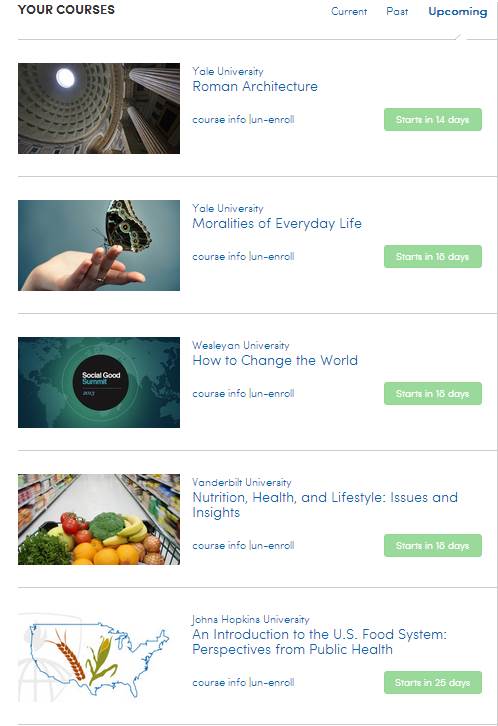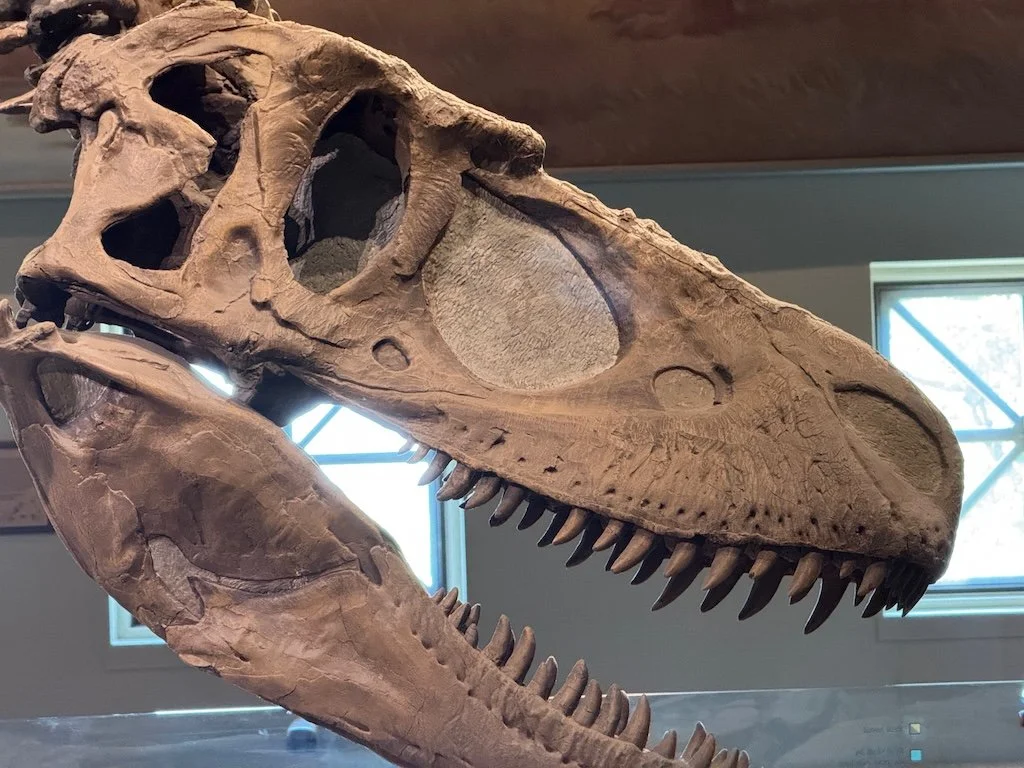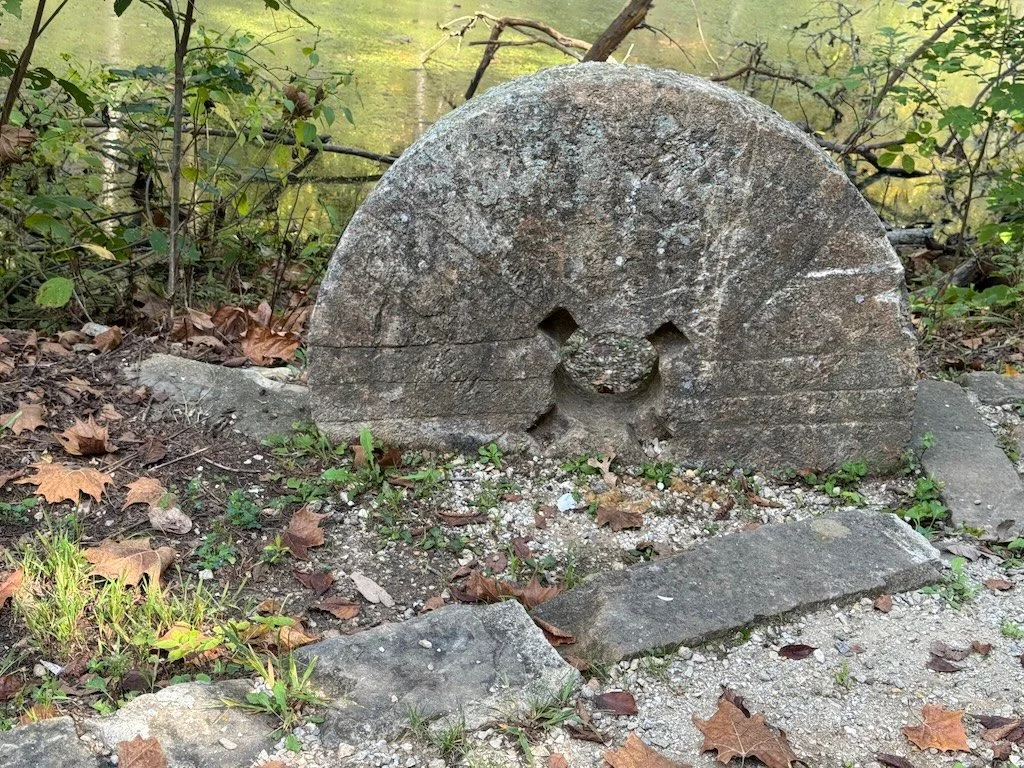Signing up for New Classes in the New Year - 2014
/ Just like traditional universities, Coursera has classes starting this month. It is challenging to pick - and I have probably overindulged by enrolling in 4:
Just like traditional universities, Coursera has classes starting this month. It is challenging to pick - and I have probably overindulged by enrolling in 4:
Roman Architecture from Yale University because I’ve never taken an architecture class - it’s a different perspective on history. Also - this will be my first course from Yale.
Moralities of Everyday Life from Yale University because the increased lack of civility within political discourse in the US seems linked to ideas about morality. That makes the topic much more reality rather than theoretically focused.
How to Change the World from Wesleyan University because I thoroughly enjoyed Michael Roth’s previous course on Coursera: The Modern and Postmodern.
An Introduction to the US Food System: Perspectives from Public Health from Johns Hopkins University because it seems like our food system has been changing very quickly although it is difficult to grasp the changes as a whole…and the impact on health. It is a complex topic.
In addition, I signed up for Nutrition, Health, and Lifestyle: Issues and Insights from Vanderbilt for the one new lecture: Food Allergies and Intolerances: Separating Fact from Fiction. I took the course last spring/summer and it honed my understanding of nutrition in a way that helped me take off the last 15 pounds (to down to the weight I was at 25!).
I’m sure they will all have some extra reading that will supplement the videos. I’m planning on allocating a day of each week to each of one….and then using the other days of the week to catch the overflow. The courses do have to fit into the rest of life. I generally do the multiple choice knowledge checks embedded in the videos but not the quizzes or other assignments. I’m not after a grade and I prefer to talk about topics from the course with people I interact with face to face rather than other students virtually.
There was an article recently about MOOCs not living up to their original goal of online education approaching the quality of traditional colleges to the large population all over the world without access to such institutions. That is probably the case but, through refinement by iteration, they could improve on that goal. I’d like to suggest that MOOCs have an even larger role in society in the realm of lifelong learning - in enhancing the quality of life particularly for those that are long past the traditional college age. I’d like to see the end of course surveys probe this aspect. It would be interesting to know not just how many people did everything the course required to get a certificate or credit but how many students completed a subset like:
- Watched all the videos
- Read the online (free) references
- Scan parts of the discussion form
- Read all the references
In my case, I generally do the first three --- and get what I want from the course. A certificate or credit is not something I need.
It would also be interesting to find out how many people would be willing to pay some amount for the lectures to defray the cost of producing them. What amounts would be tolerated? Or does a charging scheme get too complicated to administer?
The bottom line for me is - I enjoy the Coursera offerings. I applaud the universities and professors that are participating. It is a positive development in education and the experiment has already succeeded for those of us that see these courses as a potent addition to lifelong learning.
















